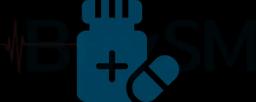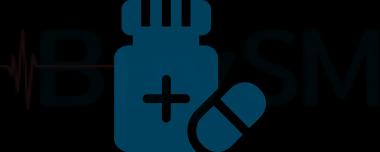

Zufinib 250 mg Tablet | 10 Tablets in 1 Strip
- Manufacturer/Marketed By
Zuventus Healthcare Ltd
- Active Pharmaceutical Ingredient
Gefitinib 250 mg
(Inclusive of all taxes)
Introduction of Zufinib 250 mg Tablet
Zufinib 250 mg Tablet is a medicine used to treat non-small cell lung cancer (NSCLC) that has spread to other parts of the body in patients with abnormal EGFR genes who have not had previous cancer treatment. However, this particular drug, Zufinib 250 mg, is not suitable for use in children or adolescents because of unknown safety and effectiveness in these age groups.
Zufinib 250 mg Tablet can cause various side effects, including diarrhoea, rash, and nausea. It may also cause potentially serious side effects such as liver damage and lung inflammation. If you experience any side effects while taking Zufinib 250 Tablet, it is important to discuss them with your doctor. It is important to note that if you are allergic to Zufinib 250 mg or any of its ingredients, you should not use Zufinib Tablet. If you are pregnant, planning to become pregnant, or breastfeeding, it is advisable to consult your doctor before using this medicine.
Before starting Zufinib 250 mg Tablet, it is important to have a conversation with your doctor about the potential risks and benefits associated with this medication. You should also discuss any other questions or concerns you may have. It is also important to tell your doctor about any medical conditions you have and any other medicines, vitamins, supplements, or herbal products you are currently taking.
Uses of Zufinib 250 mg Tablet
Non-small cell lung cancer: Zufinib 250 Tablet is prescribed for the treatment of non-small cell lung cancer, a form of lung cancer that impacts a significant number of cells within the lung.
Benefits of Zufinib 250 mg Tablet
Zufinib Tablet inhibits a protein called epidermal growth factor receptor (EGFR), which is involved in the growth and spread of cancer cells. By inhibiting this protein, Zufinib 250 Tablet may help to slow the progression of cancer.
Zufinib 250 mg may help reduce the severity of cancer-related symptoms, such as pain and fatigue, which can improve a patient's overall quality of life.
Zufinib Tablet may be used in combination with other cancer treatments, such as chemotherapy, to improve their effectiveness.
Side Effects of Zufinib 250 mg Tablet
As with all medicines, Zufinib 250 mg Tablet may cause some side effects. If you experience any of these side effects, you should contact your doctor or health care professional as soon as possible. Your doctor may be able to suggest ways in which these side effects can be managed or the severity of them reduced.
Most Common Side Effects of Zufinib 250 mg Tablet
- Tremor
- Hypertension
- Headache
- Increased Potassium levels in the blood
- Hypertension
- Gastrointestinal problems
- Abnormal Growth of Hair
Common Side Effects of Zufinib 250 mg Tablet
- Liver Damage
- Seizures
- Infection
- Kidney Damage
- Memory Problems
- Vision Problems
- Sleeplessness
How to Use Zufinib 250 mg Tablet?
It is recommended to consume Zufinib 250 mg Tablet with or without food. Be sure to swallow the tablet whole with a complete glass of water. Avoid crushing, chewing, or opening the tablet. In case you forget to take a dose, take it as soon as you remember. However, if it is nearly time for your next dose, skip the missed dose and adhere to your regular dosing schedule. Remember not to take two doses simultaneously to compensate for a missed dose.
How Zufinib 250 mg Tablet Works?
Zufinib 250 mg works by inhibiting the activity of the epidermal growth factor receptor (EGFR) protein, which is found on the surface of cells and is involved in the growth and proliferation of cancer cells. When EGFR is activated, it sends signals to the inside of the cell to grow and divide. Zufinib 250 Tablet binds to the EGFR and prevents it from activating, thereby inhibiting the growth and proliferation of cancer cells.
Safety Advices Zufinib 250 mg Tablet
Alcohol
Unsafe
The use of alcohol is generally not recommended while taking Zufinib 250 mg Tablet as it may increase the risk of liver damage. It is advisable to either abstain from alcohol or limit your alcohol intake while taking any medication.
Kidney
Use with Caution
Zufinib 250 mg Tablet is considered safe for patients with mild to moderate kidney disease and no dose adjustment of Zufinib 250 mg is required. However, people with severe kidney disease are advised not to take Zufinib 250 Tablet Tablet. To ensure the safety and effectiveness of your treatment, it is important to have an open discussion with your doctor about all your medical conditions and medications.
Liver
Use with Caution
Zufinib 250 mg Tablet is considered safe for patients with mild to moderate liver disease, and there is no need to adjust the dose of Zufinib Tablet. However, people with severe liver disease should not use Zufinib 250 mg Tablet. It is important to have an open discussion with your doctor about your medical conditions and medications to ensure that the treatment plan is appropriate for you.
Pregnancy
Unsafe
Zufinib 250 mg Tablet may be unsafe during pregnancy as animal studies suggest that it may harm the developing fetus. However, if you are pregnant or planning to get pregnant, it is important to talk to your doctor about the potential risks and benefits of taking Zufinib 250 mg Tablet while pregnant. Your doctor will be able to help you make the decision that is best for you and for the health of your baby.
Breastfeeding
Unsafe
It is not advisable to breast-feed while taking Zufinib 250 Tablet as this may cause harm to the baby. Zufinib 250 mg Tablet can pass into breast milk and cause adverse effects. If you are currently breastfeeding and using Zufinib Tablet, it is important to discuss with your doctor the potential risks and benefits of continuing to breastfeed. Your doctor will help you make the decision that is best for you and your baby.
Driving
Unsafe
Zufinib 250 mg Tablet may cause dizziness, drowsiness, and problems with concentration and coordination, which may impair your ability to drive a vehicle safely. It is important that you follow your doctor's instructions and take the necessary measures, such as avoiding driving or operating heavy machinery, if you experience any of these side effects caused by Zufinib Tablet.
Similar Medicines
Anti-Cancer
Why customers like you choose BuySM.com?

Genuine Medicine
We maintain complete transparency in our sourcing and supply chain processes.

Secure Payments
This ensures that all data exchanged between your browser and our server remains confidential and secure

Fast Delivery
Stay informed about the status of your order with our real-time tracking feature.

Best Price & Offer
Enjoy even greater savings by taking advantage of our bundle offers.

5,000
Total Customers

15,000+
Products Sold Out

10,000+
Orders Delivered

10+
Cities







